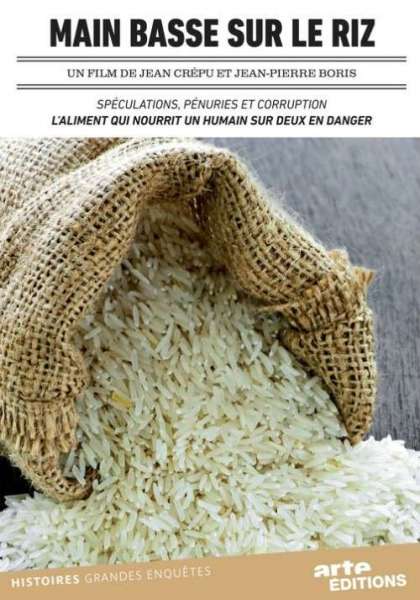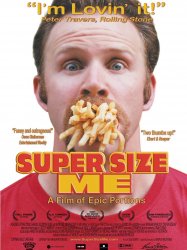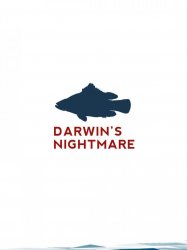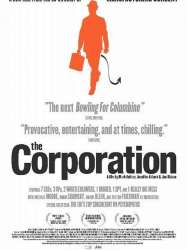Main basse sur le riz is a film of genre Documentary
Main basse sur le riz (2010)

If you like this film, let us know!
- Infos
- Casting
- Technical infos
- Photos
- Videos
- Film quotes
- Characters
- Music
- Awards
Length 1h24
Genres Documentary
Themes Cooking films, La mondialisation, Films about the labor movement, Documentaire sur la cuisine, Documentary films about business, Documentaire sur le monde du travail
Rating58%










Main basse sur le riz est un film documentaire réalisé par Jean Crépu et le journaliste Jean-Pierre Boris basé sur l'enquête de Jean Crépu sorti en 2010.
Synopsis
Ce documentaire d’investigation s'intéresse au marché du riz, l'un des produits de base de l'alimentation des plus pauvres.Comments
Leave comment :
Suggestions of similar film to Main basse sur le riz
There are 8975 with the same cinematographic genres, 1548 films with the same themes (including 2 films with the same 6 themes than Main basse sur le riz), to have finally 70 suggestions of similar films.If you liked Main basse sur le riz, you will probably like those similar films :

We Feed the World (2005)
, 1h36Directed by Erwin Wagenhofer
Origin Austria
Genres Documentary
Themes Cooking films, Environmental films, La mondialisation, Films about the labor movement, Documentaire sur la cuisine, Documentary films about business, Documentaire sur l'altermondialisme, Documentary films about environmental issues, Documentaire sur la malbouffe, Documentaire sur le monde paysan, Documentary films about health care, Documentaire sur le monde du travail
Rating74%





Avec We Feed the World, le documentariste Erwin Wagenhofer propose aux spectateurs un regard sur l'agriculture mondiale moderne. En passant par la Roumanie, l'Autriche, le Brésil, la France et l'Espagne, son enquête se focalise sur la manière dont est fabriqué ce qui arrive dans notre assiette. Il montre que la domination du Nord sur le Sud est prégnante. Comment est-il possible qu'en Afrique l'on achète des produits européens ou asiatiques comme le poulet thaïlandais ? Le réalisateur présente une face peu connue de la mondialisation : en achetant un poulet industriel, on contribue au défrichement de l'Amazonie car le Brésil déforeste pour cultiver le soja qui sert à nourrir les volailles élevées en batterie (90 % de la production de soja du Brésil est exportée). Le documentaire souligne également la différence entre industrie agroalimentaire et petite exploitation. We Feed the World adopte un style « coup de poing » visant à éveiller les consciences.

Our Daily Bread (2006)
, 1h32Directed by Nikolaus Geyrhalter
Origin Austria
Genres Documentary
Themes Cooking films, Environmental films, La mondialisation, Films about the labor movement, Documentaire sur la cuisine, Documentary films about business, Documentary films about environmental issues, Documentaire sur le monde paysan, Documentaire sur le monde du travail
Rating75%





Le documentaire fournit des images sur le fonctionnement des plus grandes industries agroalimentaires européennes que ce soit dans le domaine de la production des fruits et légumes que dans celle de la viande. Ni musique ni commentaire ne viennent accompagner les séquences filmées. Le décor est constitué de champs, d'usines, d'abattoirs, et le réalisateur utilise de longs plans fixes y compris pour filmer les ouvriers en train de manger.
 , 22minutes
, 22minutesOrigin Danemark
Genres Documentary, Animation
Themes Cooking films, Environmental films, Films about the labor movement, Documentaire sur la cuisine, Documentary films about business, Documentary films about environmental issues, Documentary films about historical events, Documentaire sur le monde du travail, Mise en scène d'une plante
Rating74%





Fiche technique Directeur et auteur : Anders Sørensen ;

Super Size Me (2004)
, 1h38Directed by Morgan Spurlock
Origin USA
Genres Drama, Comedy, Documentary
Themes Cooking films, Medical-themed films, Obésité, Films about the labor movement, Documentaire sur la cuisine, Documentary films about business, Documentaire sur la malbouffe, Documentary films about politics, Documentary films about health care, Documentaire sur le monde du travail, Films about disabilities, Political films
Actors Morgan Spurlock
Rating71%





Plus d'un tiers des enfants et des adolescents américains ont un problème de poids. Deux adultes sur trois aux États-Unis d'Amérique sont atteints de surcharge pondérale ou d'obésité. Comment les États-Unis sont-ils devenus aussi gros ? Les chaînes de restauration rapide sont souvent montrées du doigt mais plusieurs procès qui leur ont été intentés par des clients devenus obèses ont été perdus faute de preuves.
 , 1h52
, 1h52Directed by Jean-Paul Jaud
Origin France
Genres Documentary
Themes Cooking films, Environmental films, Films about the labor movement, Documentaire sur la cuisine, Documentary films about business, Documentary films about environmental issues, Documentaire sur la malbouffe, Documentary films about health care, Documentaire sur le monde du travail, Documentary films about nature
Rating67%





Our Children Will Accuse Us tells the story of an initiative in Barjac, a commune located in the Gard department in southern France, that decided to introduce organic produce into the town's school cafeteria. The film depicts without concessions the environmental tragedy which threatens the young generation: the poisoning of our country sides by agricultural pesticides (76 000 tons of pesticides used each year in France) and the harm caused to public health and safety.

Darwin's Nightmare (2005)
, 1h50Origin France
Genres Documentary
Themes Films set in Africa, Films about animals, Cooking films, Environmental films, La mondialisation, Films about the labor movement, Documentaire sur l'altermondialisme, Documentary films about environmental issues, Documentaire sur le monde du travail, Mise en scène d'un poisson
Rating73%





Les rives du plus grand lac tropical du monde, considéré comme le berceau de l'humanité, sont aujourd'hui le théâtre du pire cauchemar de la mondialisation.En Tanzanie, dans les années 60, la Perche du Nil, un prédateur vorace, fut introduite dans le lac Victoria à titre d'expérience scientifique. Depuis, pratiquement toutes les populations de poissons indigènes ont été décimées. De cette catastrophe écologique est née une industrie fructueuse, puisque la chair blanche de l'énorme poisson est exportée avec succès dans tout l'hémisphère nord.Pêcheurs, politiciens, pilotes russes, industriels et commissaires européens y sont les acteurs d'un drame qui dépasse les frontières du pays africain. Dans le ciel, en effet, d'immenses avions-cargos de l'ex-URSS forment un ballet incessant au-dessus du lac, ouvrant ainsi la porte à un tout autre commerce vers le sud : celui des armes.

El Ejido, la loi du profit (2006)
, 1h21Origin Belgique
Genres Documentary
Themes Cooking films, Films about the labor movement, Documentaire sur la cuisine, Documentaire sur la malbouffe, Documentaire sur le monde du travail
Rating66%





Today, the formerly-desertic region of Almeria in southern Spain produces one third of Europe's winter consumption of fruits and vegetables and reaps two thirds of the country’s farm profits. This 'economic miracle' in a greenhouse relies on the labour of nearly 80.000 immigrants, half of whom do not have working papers. In a destroyed environment where the air is vitiated by pesticides and ground water is running out, the village of El Ejido illustrates, almost to the point of caricature, this industrial exploitation of men and the land encouraged by globalisation. Driss, Moussaid and Djibril are day-labourers there, working for a pittance and, as is the case with most of their peers, without a working contract. They stay in chabolas, small constructions made of cardboard and plastic, without water or electricity. It is a near-slavery that fills our tables.

The Big One (1998)
, 1h31Directed by Michael Moore
Origin USA
Genres Documentary
Themes La mondialisation, Films about the labor movement, La précarité, Documentary films about business, Documentaire sur l'altermondialisme, Documentary films about politics, Documentaire sur le monde du travail, Political films
Actors Michael Moore, Garrison Keillor
Rating70%





The Big One est un documentaire américain de Michael Moore réalisé en 1997 lors de la tournée de promotion de son livre Downsize This! à travers les États-Unis. À chaque ville traversée le film montre la réalité sociale et le chômage en allant à la rencontre des salariés et des dirigeants d'entreprise. Il dénonce les pratiques de multinationales qui licencient leur personnel alors qu'elles font des bénéfices, ou comme Nike, dont certains sous-traitants utilisent le travail des enfants.

The Corporation (2003)
, 2h25Directed by Jennifer Abbott, Mark Achbar
Origin Canada
Genres Documentary
Themes Environmental films, Medical-themed films, La mondialisation, Films about the labor movement, Documentary films about business, Documentary films about environmental issues, Documentaire sur une personnalité, Documentary films about politics, Documentary films about health care, Documentaire sur le monde du travail, Films about psychiatry, Films about disabilities, Political films
Actors Michael Moore, Naomi Klein
Rating79%





The documentary shows the development of the contemporary business corporation, from a legal entity that originated as a government-chartered institution meant to affect specific public functions to the rise of the modern commercial institution entitled to most of the legal rights of a person. The documentary concentrates mostly upon North American corporations, especially those in the United States. One theme is its assessment of corporations as persons, as a result of an 1886 case in the United States Supreme Court in which a statement by Chief Justice Morrison R. Waite led to corporations as "persons" having the same rights as human beings, based on the Fourteenth Amendment to the United States Constitution.

Origins of a Meal (1979)
, 1h55Directed by Luc Moullet
Origin France
Genres Documentary
Themes Cooking films, La mondialisation, Films about the labor movement, Documentaire sur l'altermondialisme, Documentaire sur le monde du travail
Actors Luc Moullet
Rating71%





Partant d'un repas composé d'œufs, de thon en boîte, et de bananes, Luc Moullet remonte la chaîne qui a mené ces aliments à son assiette : responsables de supermarché, grossistes, importateurs, fabricants, ouvriers, etc. sont interviewés pour nous amener à comprendre comment tout cela fonctionne.
 Connection
Connection